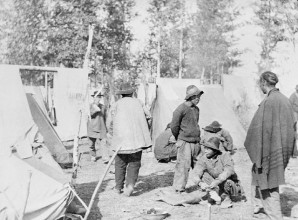Tarnished dreams
For many Chinese immigrants to Canada – and for generations of their families who followed or were born here – legislation and laws enacted by federal, provincial and municipal governments tarnished the dream of Gum San, or “Gold Mountain.”
Early Chinese immigrants faced a different and downright discriminatory set of laws that were meant to discourage them from settling in Canada.
The most egregious of these laws – the Chinese head taxes and the Chinese Exclusion Act – are now well-known black marks on Canada’s history and reputation as a country that values multiculturalism and is respectful of diversity. These values, however, were not reflected in Canada’s legislation or legal framework until relatively recently.
Supreme Court of Canada Chief Justice Beverley McLachlin has identified three major stages of development in Canadian law, with the first phase beginning in our colonial past and broadly stretching to the middle of the 20th century and characterized “by blatant exclusion and subordination.” Justice McLachlin identifies a second stage that follows and culminates with the Canadian Charter of Rights and Freedoms in 1982, a period “dominated by the goal of ‘equal opportunity.’” The third and current phase is marked by “the law positively seeking to enhance the equality and dignity of every individual.”
Justice McLachlin’s description falls short of commenting on any self-correcting ability inherent in the law itself that would deal with any historical or current inequity. In fact, the Supreme Court found itself unable to deal with injustices of the past when Chinese Canadians in December, 2002, asked it to rule on redress and restitution for the head tax.
From the point of view of the Chinese Canadians, the major victories in their struggle for civil rights in Canada that have led to any substantive change were almost entirely brought about by their own activism. The Chinese Canadian community, characterized by successive generations of immigrants, including naturalized citizens and those born in Canada, experienced a high degree of legalized discrimination.








